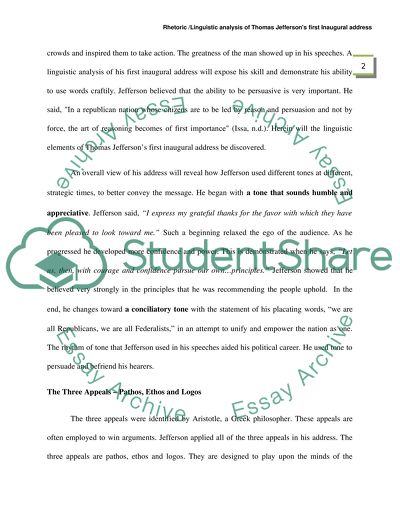Cite this document
(“Rhetoric /Linguistic analysis of Thomas Jefferson's first Inaugural Research Paper”, n.d.)
Retrieved de https://studentshare.org/english/1390193-rhetoric-linguistic-analysis-of-thomas-jefferson-s
Retrieved de https://studentshare.org/english/1390193-rhetoric-linguistic-analysis-of-thomas-jefferson-s
(Rhetoric /Linguistic Analysis of Thomas Jefferson'S First Inaugural Research Paper)
https://studentshare.org/english/1390193-rhetoric-linguistic-analysis-of-thomas-jefferson-s.
https://studentshare.org/english/1390193-rhetoric-linguistic-analysis-of-thomas-jefferson-s.
“Rhetoric /Linguistic Analysis of Thomas Jefferson'S First Inaugural Research Paper”, n.d. https://studentshare.org/english/1390193-rhetoric-linguistic-analysis-of-thomas-jefferson-s.


